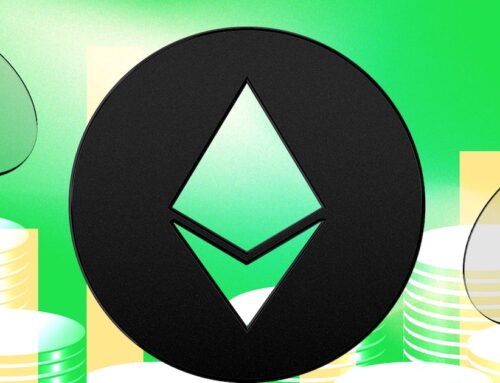Ethereum’s Founder Just Called Out Sam Altman’s World ID As A ‘Privacy Killer’—Here’s Why
July 7, 2025
Benzinga and Yahoo Finance LLC may earn commission or revenue on some items through the links below.
Ethereum cofounder Vitalik Buterin just dropped a bombshell warning about Sam Altman’s World ID system. His message is simple but chilling: these new digital identity platforms could destroy online anonymity as we know it.
The timing couldn’t be more critical. Millions are already scanning their eyeballs for World ID verification, thinking they’re getting the best of both worlds—stopping bots while keeping their data private. But Buterin sees a massive trap hidden in the fine print.
Don’t Miss:
-
Trade crypto futures on Plus500 with up to $200 in bonuses — no wallets, just price speculation and free paper trading to practice different strategies.
-
Grow your IRA or 401(k) with Crypto – unlock the power of alternative investments including a Crypto IRA within your retirement account.
Here’s the issue: World ID gives each person exactly one digital identity. Sounds fair, right? Wrong. According to Buterin, this “one-person-one-identity” rule breaks everything that makes the internet work for regular people.
Think about how you actually use the internet. You probably have different personas for different platforms—maybe a professional LinkedIn, a casual Instagram, and anonymous accounts for sensitive topics. That’s not being deceptive; that’s being human.
But World ID’s system makes this impossible. Since you can only have one identity, you effectively get one account per app. No more separation between your work life and personal interests. No more anonymous political discussions or private support group participation.
“We’re moving towards a world where all of your online activity must be tied to a single public identity,” Buterin warns. This isn’t some distant dystopian future—it’s happening now as these systems gain adoption.
The scariest part? Even World ID’s privacy technology can’t save you from real-world threats. If your boss, government, or anyone with power forces you to reveal your digital identity, your entire online life becomes visible instantly. Every app, every comment, every like—all connected to you personally.
Trending: New to crypto? Get up to $400 in rewards for successfully completing short educational courses and making your first qualifying trade on Coinbase.
Modern AI can already connect your accounts by analyzing your writing style, posting times, and interests. In a one-identity world, one mistake could expose everything. There’s no backup plan, no other anonymous accounts to fall back on.
Buterin puts it bluntly: “Pseudonymity is fragile and requires a large safety buffer.” World ID removes that safety buffer entirely.
Here’s the kicker: even if you don’t use World ID personally, you’re still at risk. If any single identity system gets too popular—say, 90% market share—it becomes the internet’s default login method. Suddenly, you can’t access most websites without surrendering your anonymity.
This is what Buterin calls the “winner-takes-all” problem. The benefits of having multiple identity options disappear if everyone starts requiring the same system.
Lost Privacy: Your professional life, personal interests, and political views all become linked to one traceable identity.
Increased Risk: One data breach or forced disclosure exposes your entire digital footprint.
Fewer Safe Spaces: Anonymous communities for whistleblowers, marginalized groups, or sensitive topics could disappear.
See Also: A must-have for all crypto enthusiasts: Sign up for the Gemini Credit Card today and earn rewards on Bitcoin Ether, or 60+ other tokens, with every purchase.
For crypto investors, this debate matters. Ethereum’s focus on privacy-preserving tech could become huge if concerns about identity systems grow. Projects building truly anonymous alternatives might see massive demand.
Meanwhile, if one-identity systems take over, we could see new networks emerge that preserve internet anonymity—creating fresh investment opportunities.
Buterin isn’t anti-technology or anti-verification. He’s warning us about building systems that accidentally destroy something precious: the ability to be anonymous online when you need to be.
The choice we make now will define the internet for decades. As World ID spreads, the window for preserving anonymous options is closing fast. The question isn’t whether we need identity verification—it’s whether we’re willing to sacrifice online freedom to get it.
The internet as we know it might not survive this transition. According to one of crypto’s smartest minds, we should be very worried about that.
Read Next: Named a TIME Best Invention and Backed by 5,000+ Users, Kara’s Air-to-Water Pod Cuts Plastic and Costs — And You Can Invest At Just $6.37/Share
Image: Shutterstock
This article Ethereum’s Founder Just Called Out Sam Altman’s World ID As A ‘Privacy Killer’—Here’s Why This Crypto Feud Could Change Everything originally appeared on Benzinga.com
Terms and Privacy Policy
Search
RECENT PRESS RELEASES
Related Post


